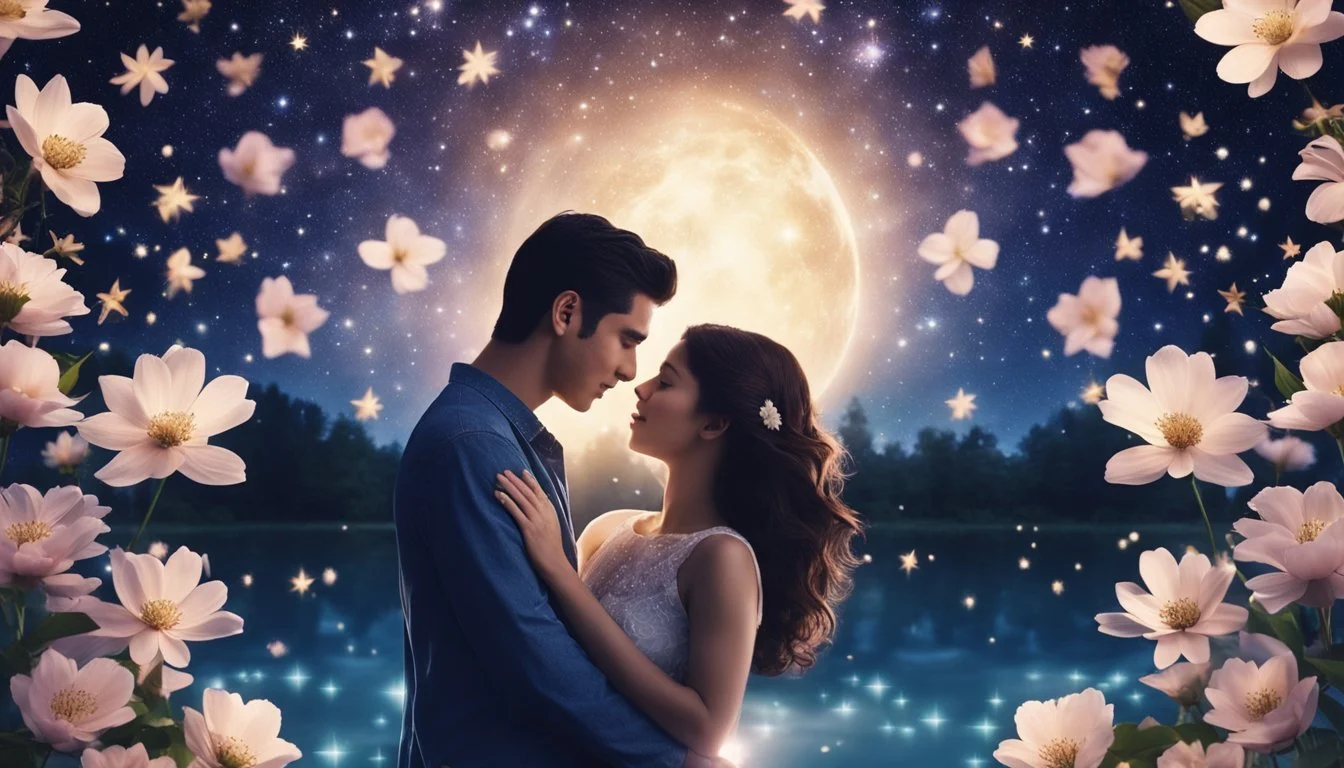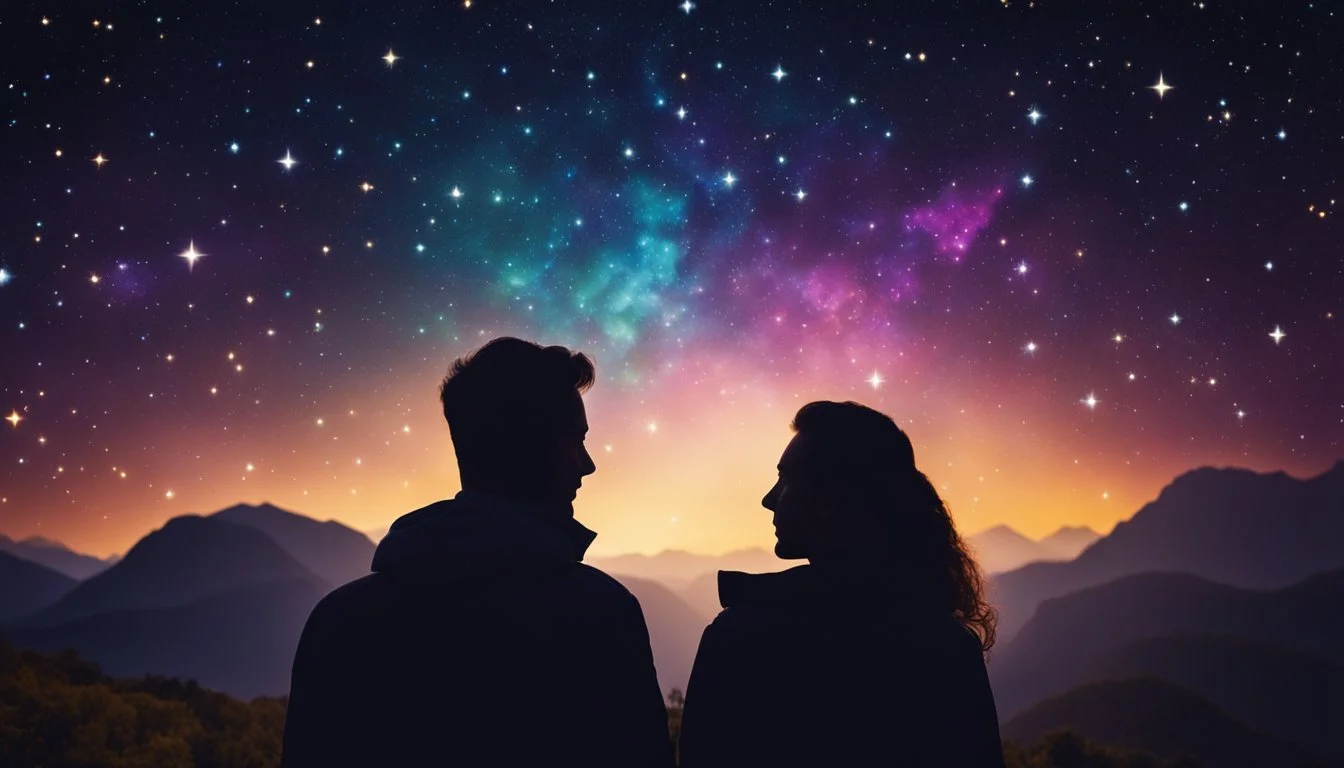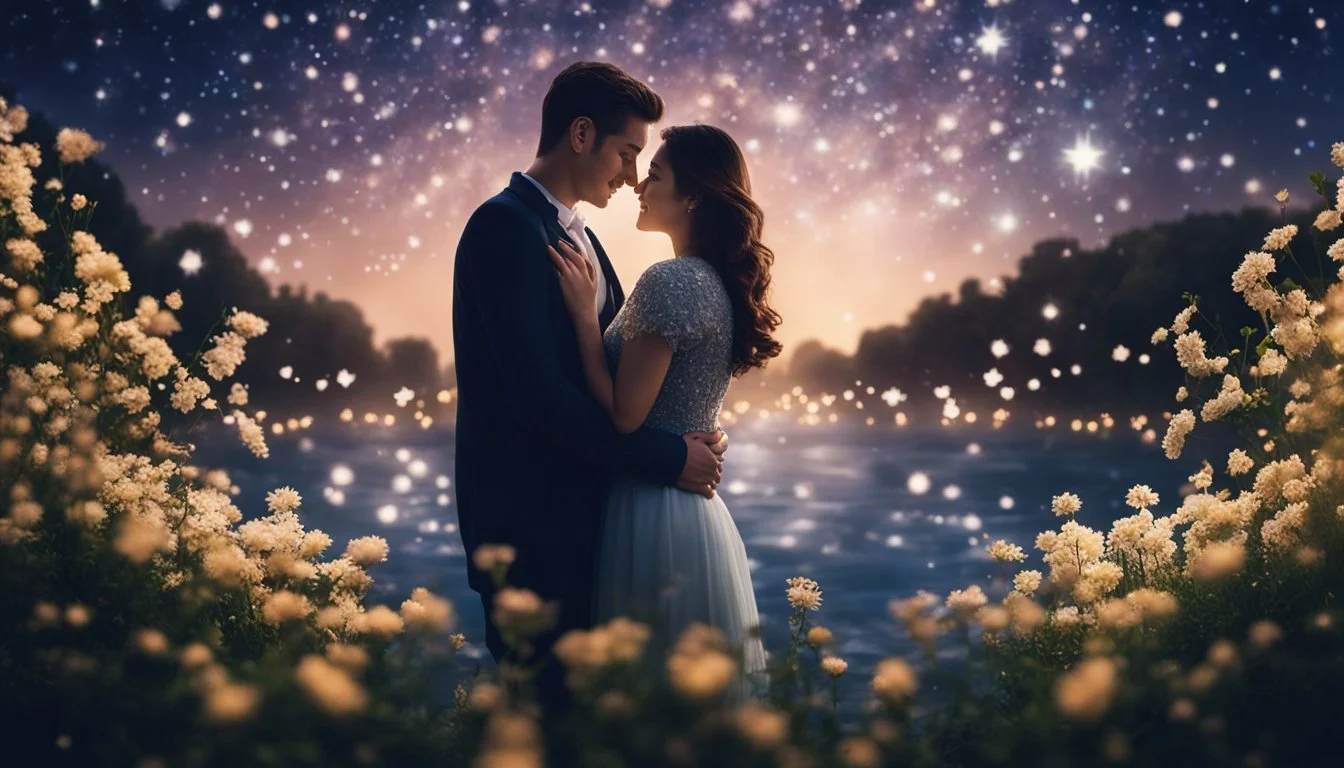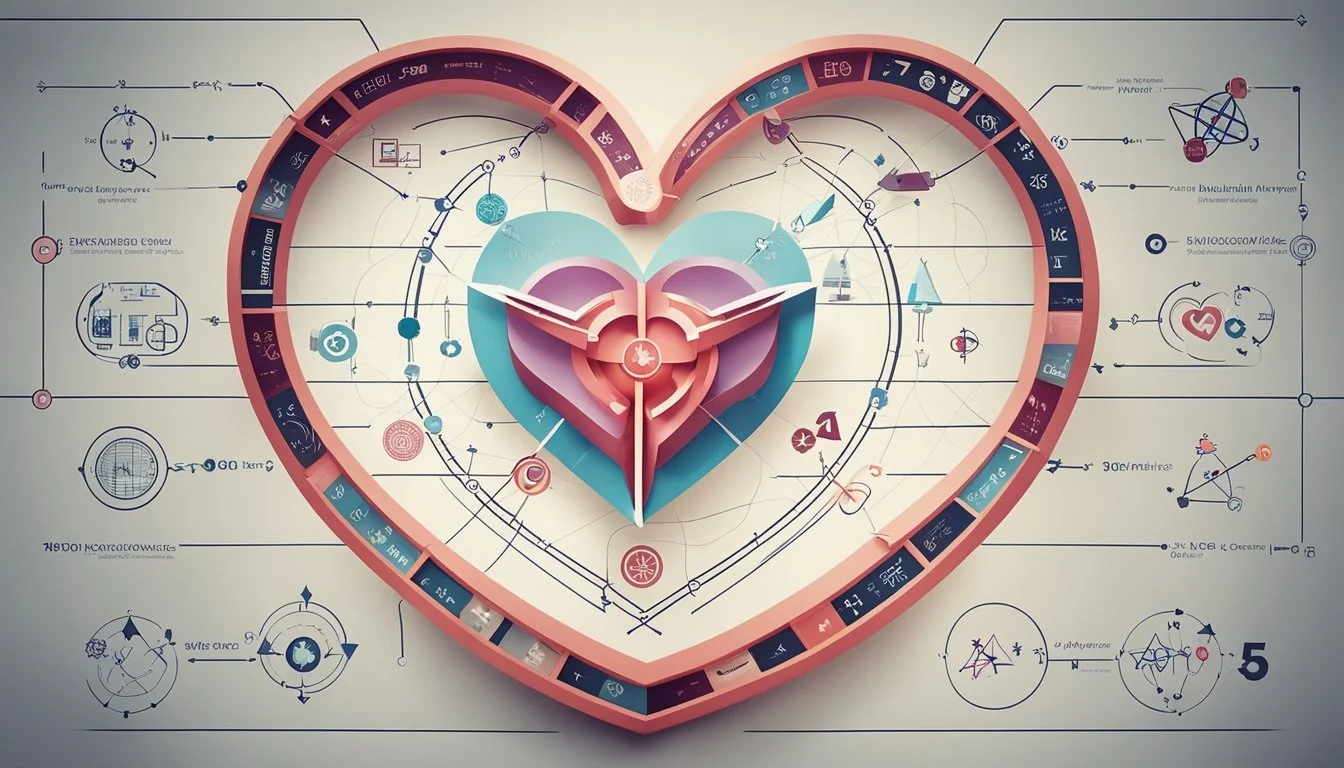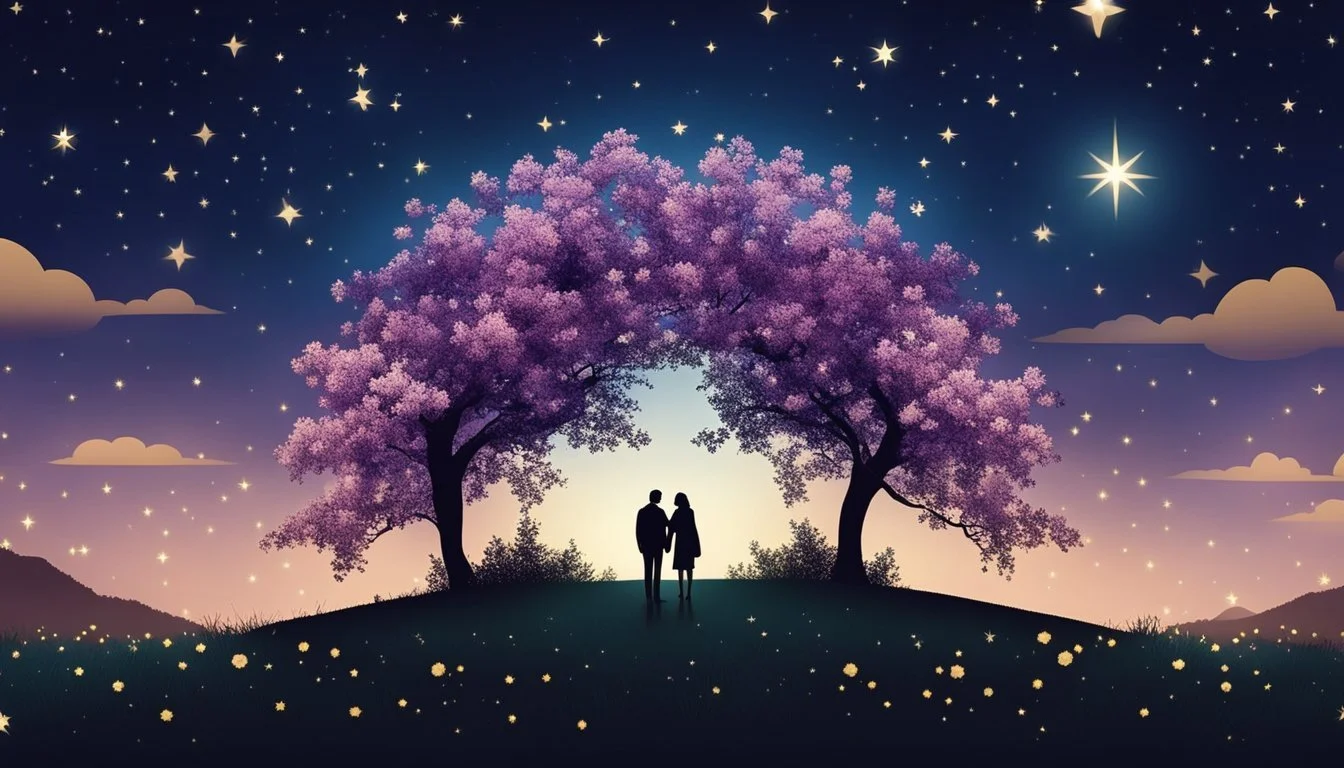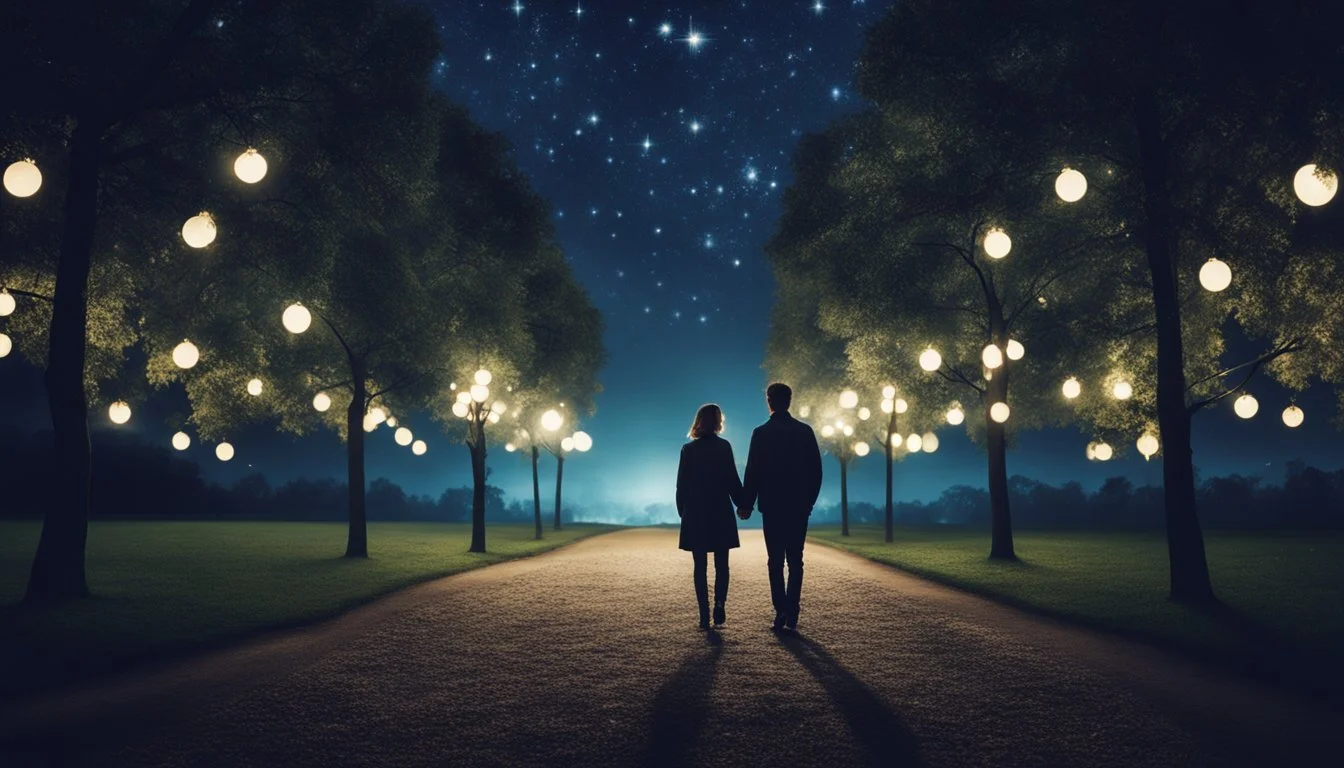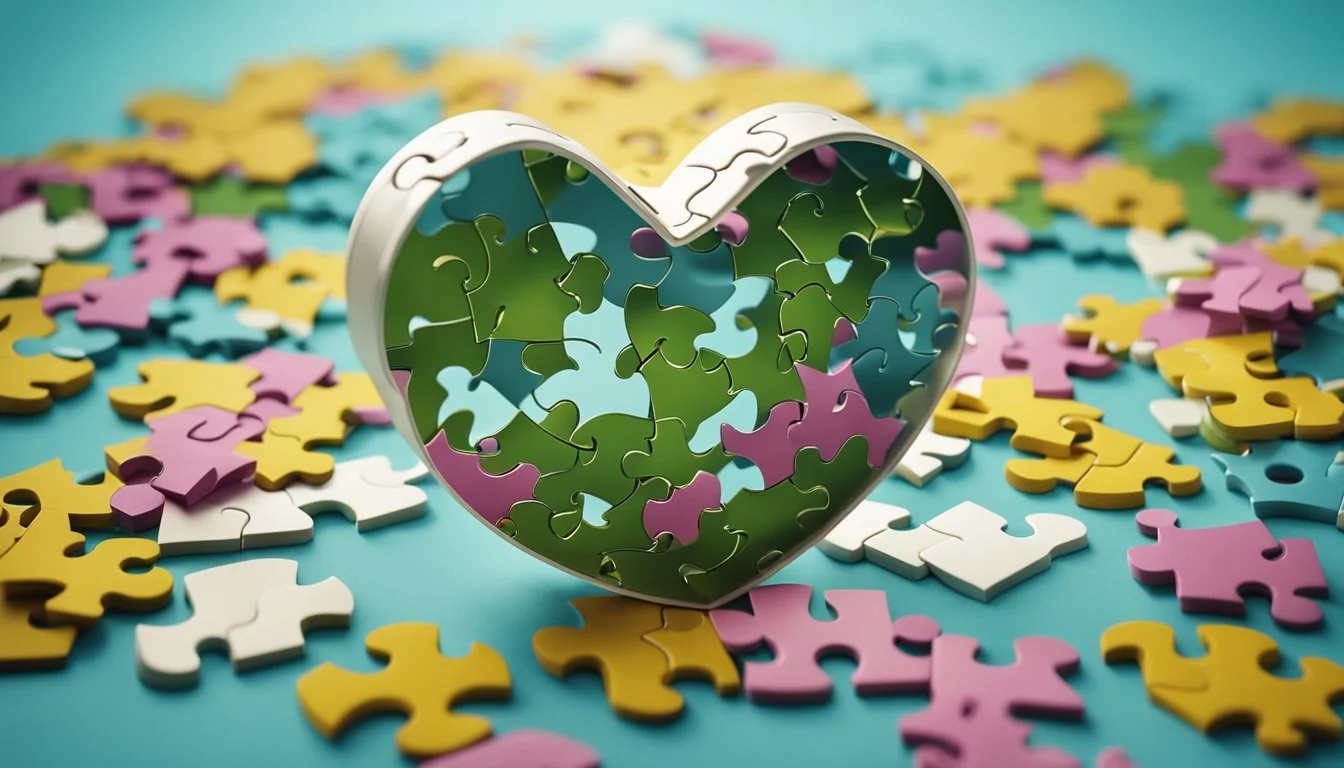10 Documentaries That Celebrate the Complexity of Love
Exploring Relationships Through Real-Life Stories
Love is a complex and multifaceted emotion that has captivated humans throughout history. Documentaries offer a unique window into real-life relationships, allowing viewers to explore the intricacies of love in all its forms. From romantic partnerships to familial bonds, these films provide an intimate look at the human experience of connection and affection.
Documentaries about love can inspire, educate, and move audiences by showcasing authentic stories of resilience, passion, and commitment. By examining both the joys and challenges of relationships, these films offer valuable insights into the nature of love and its impact on individuals and society. Through personal narratives and expert analysis, love documentaries provide a deeper understanding of this universal human experience.
1) 'Love is the most beautiful of dreams and the worst of nightmares.' - Aman Jassal
This poignant quote by Aman Jassal encapsulates the dual nature of love explored in many documentaries. It highlights how love can bring both joy and pain, echoing the complexities depicted in films about relationships.
Documentaries often showcase real-life stories that embody this duality. They present love as a source of profound happiness and fulfillment, while also revealing its potential for heartbreak and despair.
Some films focus on the dreamlike aspects of love, capturing the euphoria of new relationships or long-lasting partnerships. Others delve into the nightmarish side, examining toxic dynamics or the aftermath of failed romances.
By presenting these contrasting experiences, documentaries offer a nuanced view of love. They remind viewers that relationships can be simultaneously beautiful and challenging, mirroring Jassal's sentiment about love's dual nature.
Learn more about Aman Jassal's work
2) Amour (2012)
Amour is a French-language drama film directed by Michael Haneke. It tells the story of Georges and Anne, an elderly couple facing the challenges of aging and illness.
The film explores the deep bond between the two retired music teachers as Anne suffers a stroke. Their relationship is tested as Georges becomes her caregiver, highlighting the complexities of love and devotion in difficult circumstances.
Amour features powerful performances by Jean-Louis Trintignant and Emmanuelle Riva as the main characters. The intimate portrayal of their struggle resonates with audiences, offering a poignant reflection on love, mortality, and the human condition.
The film received critical acclaim for its sensitive handling of end-of-life issues. It won numerous awards, including the Palme d'Or at the 2012 Cannes Film Festival and the Academy Award for Best Foreign Language Film.
More information about Amour (2012)
3) The Science of Love (2011)
This documentary explores the biological and neurological underpinnings of romantic love. Narrated by Peter Coyote, it features insights from renowned experts in the field of neuroscience and relationship studies.
Dr. Helen Fisher, a prominent anthropologist, shares her research on the brain chemistry of love. The film delves into the hormonal changes and neural pathways activated when people fall in love.
Viewers learn about the role of oxytocin, often called the "love hormone," in bonding and attachment. The documentary also examines how different stages of relationships affect brain activity.
Through interviews and scientific explanations, the film illuminates the complex interplay between biology and emotion in human partnerships. It offers a fascinating look at how our bodies and minds work together to create the experience of love.
The Science of Love provides a unique perspective on romance, blending hard science with the universal human experience of falling in love.
More information about The Science of Love (2011)
4) Love, Gilda (2018)
"Love, Gilda" offers an intimate look at the life and career of beloved comedian Gilda Radner. Directed by Lisa D'Apolito, this documentary showcases Radner's journey through her own words and personal archives.
The film weaves together Radner's audiotapes, home movies, and diary entries, providing a unique perspective on her experiences. It covers her rise to fame as an original cast member of "Saturday Night Live" and her battle with ovarian cancer.
Contemporary comedians, including Amy Poehler, read Radner's diaries aloud, connecting her legacy to modern comedy. The documentary highlights Radner's impact on the entertainment industry and her enduring influence.
"Love, Gilda" premiered at the Tribeca Film Festival in 2018 and received critical acclaim. It celebrates Radner's humor, resilience, and ability to find light in difficult situations.
The film explores Radner's personal struggles and triumphs, offering a balanced portrayal of her life. It serves as a testament to her comedic genius and her lasting impact on the world of entertainment.
5) Stories We Tell (2012)
Sarah Polley's "Stories We Tell" explores the complexities of love and family through a deeply personal lens. The documentary delves into Polley's own family history, uncovering long-held secrets and multiple perspectives on past events.
At the heart of the film is the story of Polley's mother, Diane, who passed away when Sarah was young. Through interviews with family members and friends, Polley pieces together a nuanced portrait of her mother's life and relationships.
The documentary skillfully weaves together archival footage, reenactments, and candid interviews. This multi-layered approach reflects the film's central theme: the subjective nature of memory and storytelling.
As Polley investigates her own parentage, the film raises thought-provoking questions about identity, truth, and the stories we construct about our lives. It challenges viewers to consider how personal narratives shape our understanding of love and family.
"Stories We Tell" received critical acclaim for its innovative approach to documentary filmmaking and its honest exploration of family dynamics. It stands as a testament to the power of storytelling in making sense of our most intimate relationships.
More information on Stories We Tell (2012)
6) Crazy Love (2007)
Crazy Love documents the tumultuous relationship between Burt Pugach and Linda Riss. Their story begins in 1959 when Pugach, a married attorney, becomes infatuated with the younger Riss.
The film chronicles a shocking turn of events when Pugach hires men to throw lye in Riss's face, permanently blinding and scarring her. This act leads to his imprisonment for 14 years.
Surprisingly, upon Pugach's release, he and Riss reconnect and eventually marry. The documentary explores their complex dynamic through interviews and archival footage.
Directors Dan Klores and Fisher Stevens present an unbiased look at this controversial relationship. They allow viewers to form their own opinions about the nature of Pugach and Riss's bond.
Crazy Love challenges conventional ideas about love, forgiveness, and human behavior. It raises questions about the fine line between devotion and obsession.
More information on Crazy Love (2007)
7) 'The heart has its reasons that reason knows nothing of.' - Blaise Pascal
This profound quote by 17th-century French philosopher Blaise Pascal explores the complex nature of human emotions and their relationship to rational thought. Pascal's words have inspired many filmmakers to delve into the mysteries of love and attraction.
One documentary that embodies this concept is "The Mystery of Love" (2006). The film examines the biological, psychological, and cultural factors that influence romantic connections, showcasing how love often defies logical explanation.
"Science of Love" (2007) takes a scientific approach to understanding romantic attraction. It presents research on brain chemistry and hormones, while acknowledging that these explanations cannot fully account for the inexplicable aspects of love.
"Love, Translated" (2010) follows several individuals searching for international love matches. The film highlights how cultural differences and language barriers can be overcome by emotional connections that transcend rational understanding.
These documentaries demonstrate that while science and reason can provide insights into love, they cannot fully explain its complexities. They reinforce Pascal's notion that the heart operates on a level beyond pure logic, shaping our experiences in ways that defy simple rational explanation.
More information on Blaise Pascal
8) My Love, Don't Cross That River (2014)
This South Korean documentary offers a touching portrayal of enduring love. Director Jin Mo-young follows elderly couple Jo Byeong-man and Kang Kye-yeol during the final months of their 76-year marriage.
Set in a mountain village in Gangwon Province, the film captures the couple's daily routines and tender moments. Jo, 98, and Kang, 89, display a deep affection that has withstood the test of time.
The documentary presents an intimate look at the couple's life together, from playful snowball fights to quiet contemplation. It explores themes of aging, companionship, and the inevitable separation that comes with death.
Jin's unobtrusive filming style allows viewers to witness the genuine emotions and interactions between Jo and Kang. The result is a poignant reflection on lifelong commitment and the enduring nature of love.
9) The Light of the Moon (2017)
"The Light of the Moon" is a powerful drama that explores the aftermath of sexual assault. Directed by Jessica M. Thompson, the film follows Bonnie, a successful New York City architect, as she navigates the impact of trauma on her life and relationships.
Stephanie Beatriz delivers a compelling performance as Bonnie, portraying the complex emotions and struggles of a survivor. The film examines how the assault affects Bonnie's sense of self, her work, and her connection with her boyfriend Matt.
Thompson's directorial approach offers a nuanced perspective on recovery, avoiding sensationalism and focusing on the day-to-day challenges Bonnie faces. The film addresses themes of intimacy, trust, and reclaiming control in one's life.
"The Light of the Moon" received critical acclaim for its sensitive handling of a difficult subject. It won the Audience Award at SXSW, highlighting its resonance with viewers.
10) 'A loving heart is the truest wisdom.' - Charles Dickens
This profound quote by Charles Dickens encapsulates the essence of love's transformative power. It suggests that true wisdom lies not in intellect alone, but in the capacity to love and empathize with others.
Dickens, a master of character development, often explored the theme of love in his works. His novels frequently portrayed characters whose wisdom stemmed from their compassionate hearts rather than formal education or social status.
The quote implies that emotional intelligence and genuine care for others are fundamental aspects of wisdom. It challenges the notion that knowledge alone constitutes true understanding of the world and human nature.
Dickens' perspective aligns with modern psychological research, which emphasizes the importance of emotional intelligence in personal and professional success. His insight remains relevant in today's world, where empathy and compassion are increasingly valued.
This quote serves as a reminder that cultivating a loving heart can lead to deeper connections, better relationships, and a more fulfilling life. It encourages readers to prioritize kindness and understanding in their interactions with others.
Learn more about Charles Dickens
Exploring Themes of Love
Documentaries offer unique insights into love's multifaceted nature across time periods and cultures. They reveal how societal norms, traditions, and personal experiences shape our understanding of relationships and intimacy.
Historical Contexts
Love has evolved throughout history, influenced by social, economic, and political factors. Ancient Greek philosophy distinguished between different types of love, like eros (romantic passion) and agape (unconditional love). Medieval courtly love traditions idealized chaste devotion.
The Victorian era saw a shift towards romantic love as the basis for marriage. This contrasted with earlier arranged marriages based on social or economic considerations. The sexual revolution of the 1960s challenged traditional notions of monogamy and marriage.
Today, documentaries explore how historical events impact modern relationships. They examine changing attitudes towards same-sex love, interracial couples, and non-traditional family structures.
Cultural Perspectives
Love manifests differently across cultures, reflecting diverse values and social norms. Western cultures often emphasize individual choice and romantic passion. Eastern traditions may prioritize family harmony and filial piety.
Some societies practice arranged marriages, while others embrace dating and courtship rituals. Documentaries highlight these contrasts, showing how cultural beliefs shape relationship expectations.
Films explore unique customs like Japan's omiai (matchmaking) tradition or Indian wedding celebrations. They also examine how globalization impacts love across borders, leading to intercultural relationships and long-distance romances.
Documentaries reveal both universal aspects of love and culture-specific expressions, fostering cross-cultural understanding and empathy.
Emotional Complexity in Documentaries
Documentaries exploring love delve into the intricate layers of human emotions. They capture the nuances of relationships through innovative storytelling and leave lasting impressions on viewers.
Narrative Techniques
Filmmakers employ various methods to portray emotional complexity in love documentaries. They often use intimate interviews, allowing subjects to express feelings in their own words. Archival footage and personal photographs add depth, providing visual context to verbal accounts.
Some directors utilize observational techniques, following couples or individuals in real-time to capture authentic moments. This approach reveals subtle interactions and unspoken emotions. Creative editing techniques, such as juxtaposing contrasting scenes, highlight the multifaceted nature of relationships.
Music and sound design play crucial roles in enhancing emotional impact. Carefully chosen soundtracks and ambient noises can evoke specific moods or underscore pivotal moments in the narrative.
Audience Impact
Love documentaries resonate deeply with viewers by presenting relatable experiences. They often prompt self-reflection, encouraging audiences to examine their own relationships and emotional patterns.
These films can challenge preconceptions about love, offering diverse perspectives on relationships. Viewers may gain new insights into different cultural approaches to romance or unconventional forms of partnership.
The raw honesty depicted in many love documentaries can be cathartic for audiences. Seeing others navigate complex emotions can provide comfort and validation. Some viewers report feeling less alone in their struggles after watching these films.
Documentaries that explore the ups and downs of love can inspire hope and resilience. They remind viewers that relationships require effort and that challenges are a normal part of the journey.

